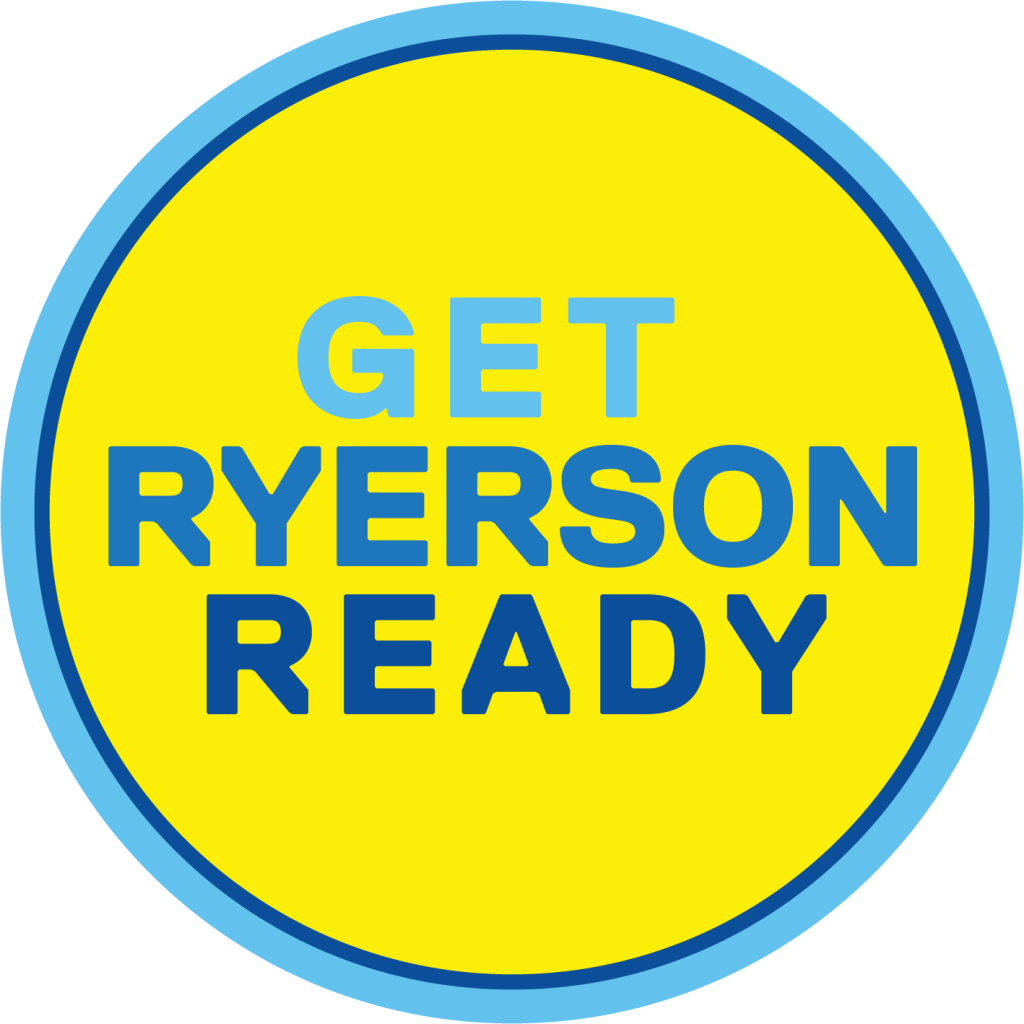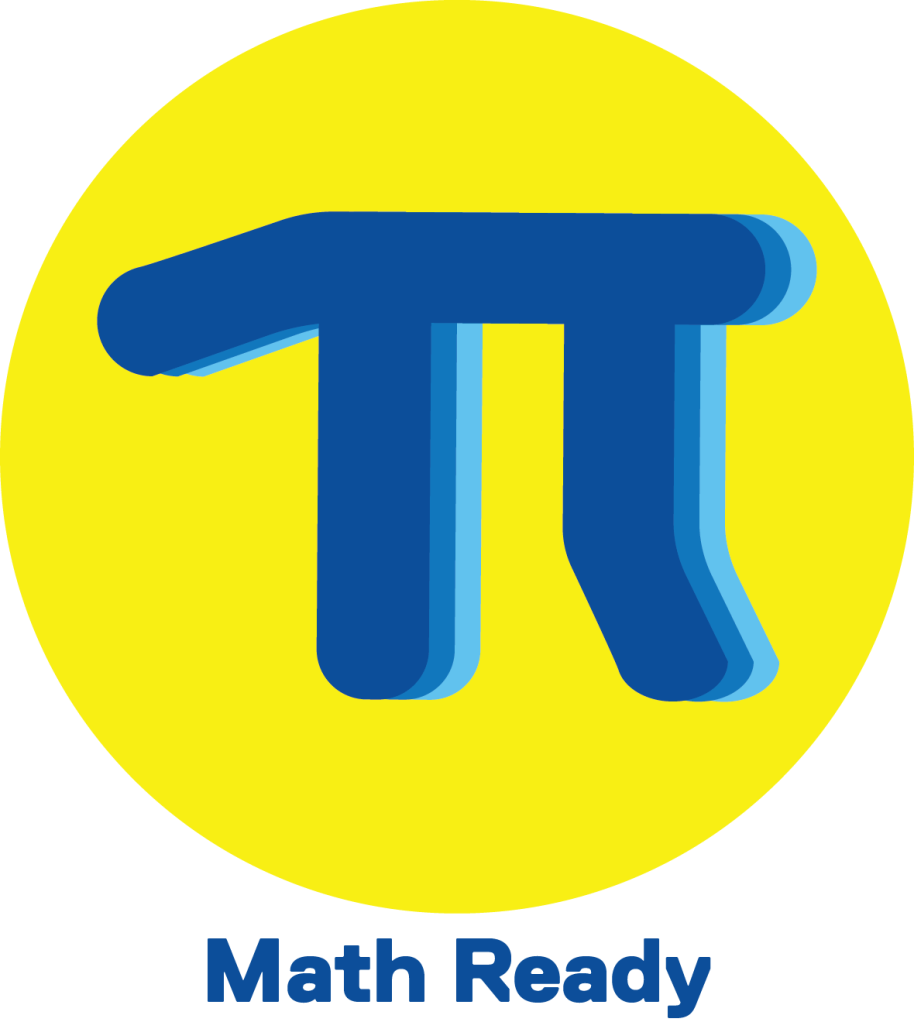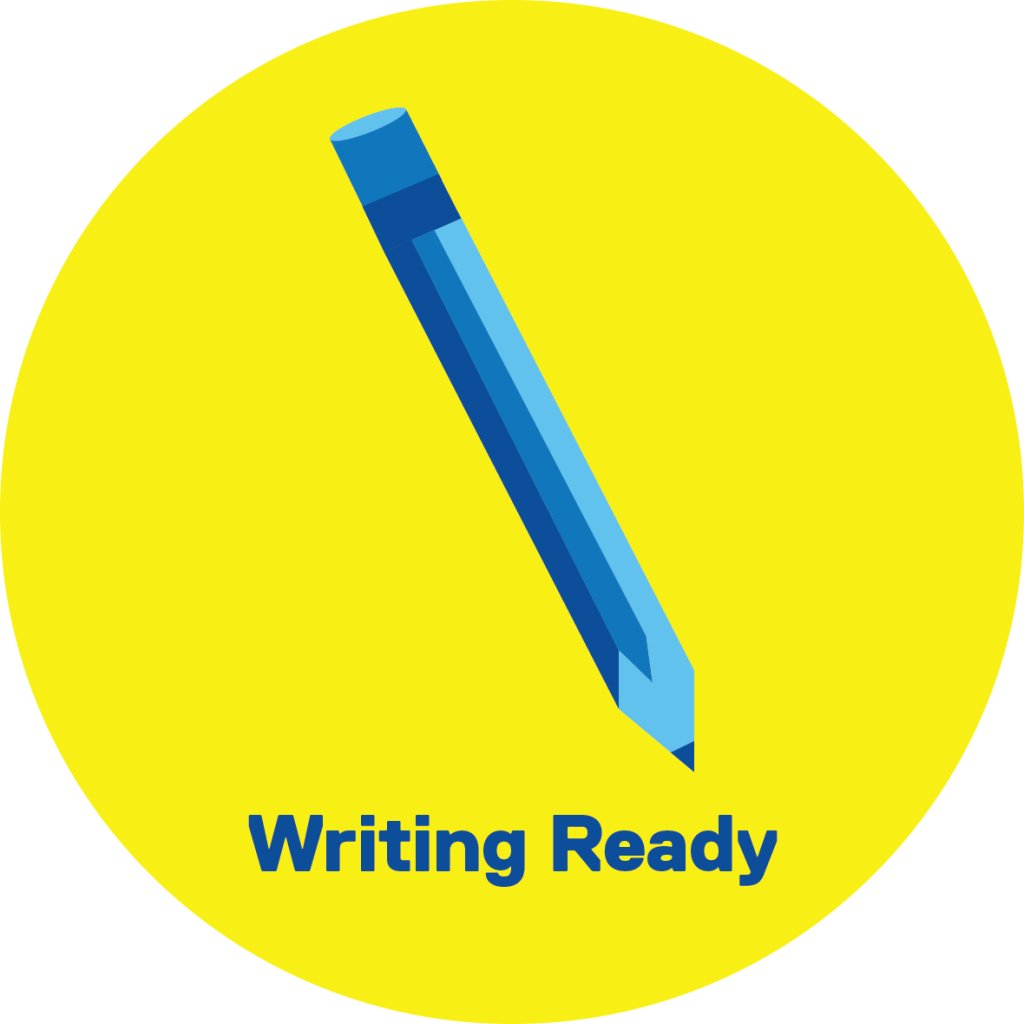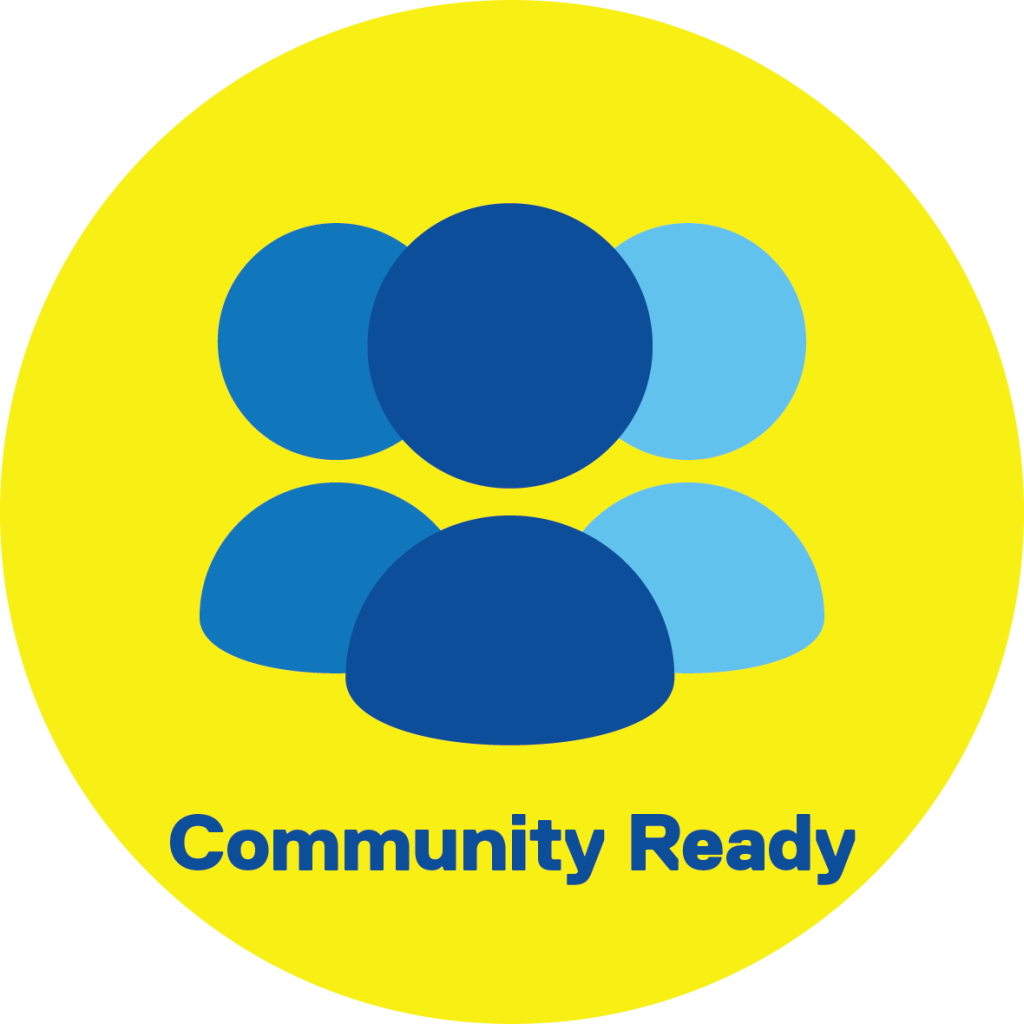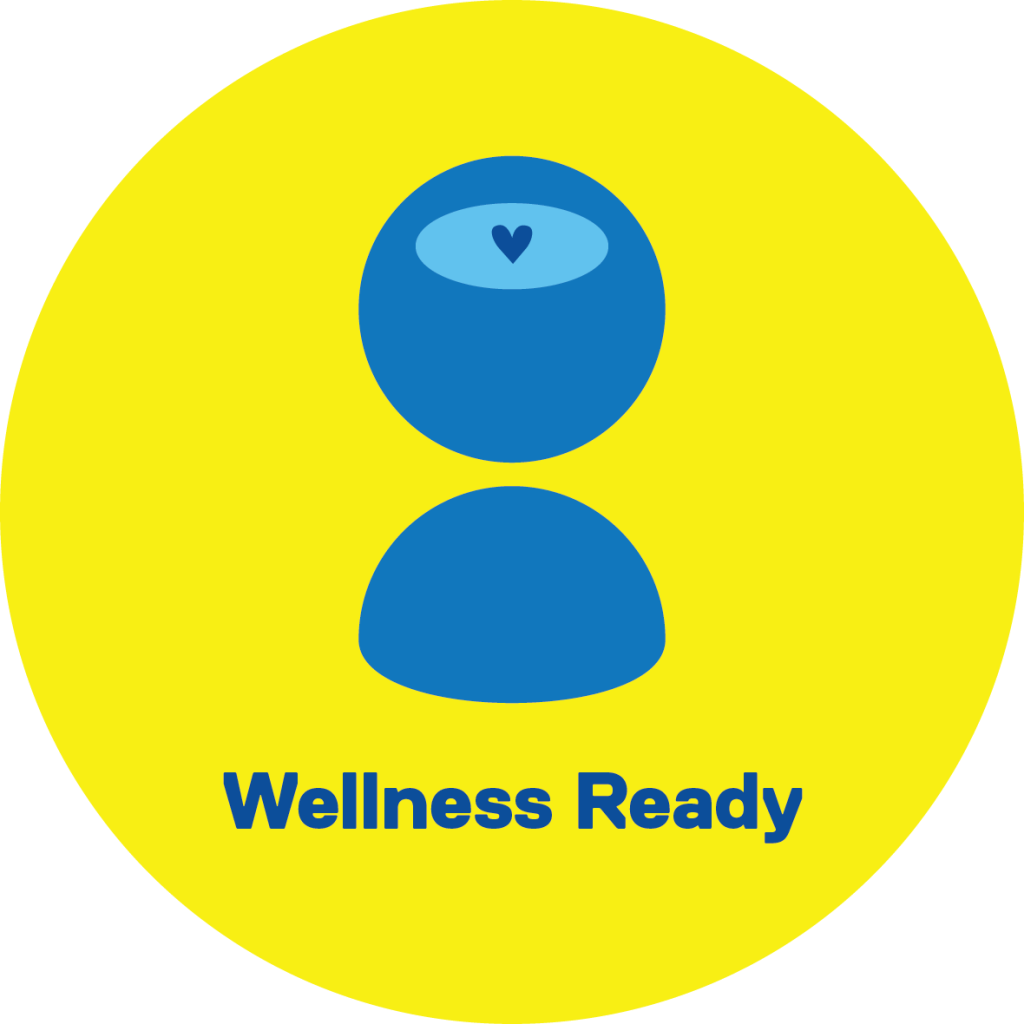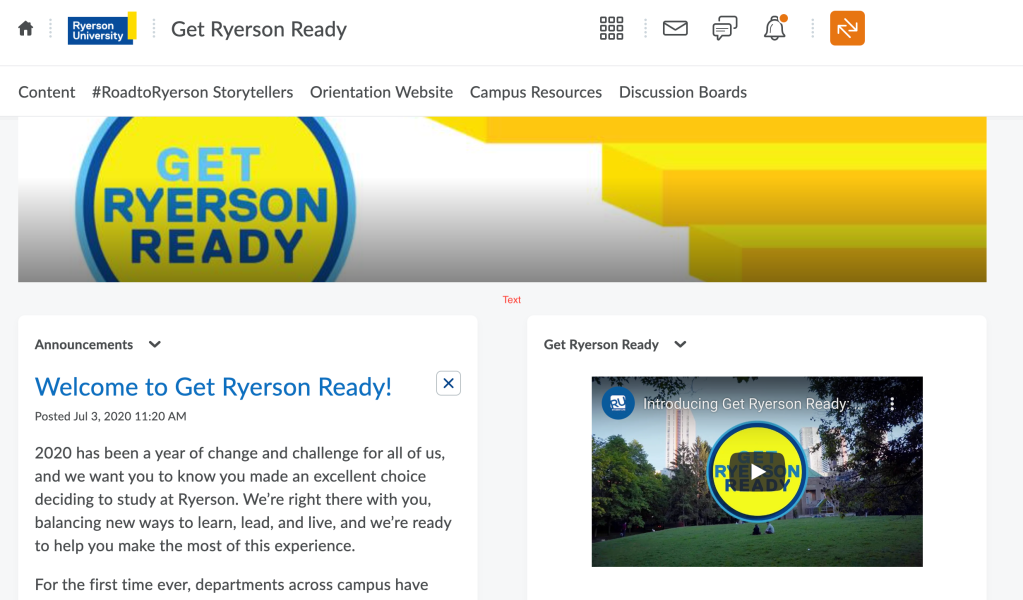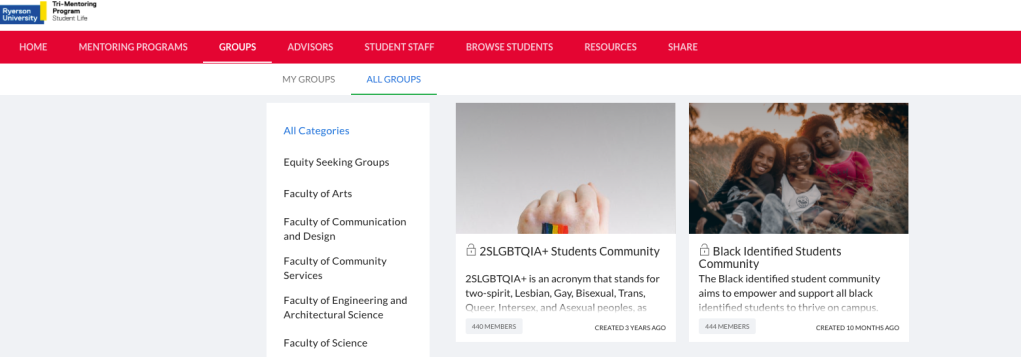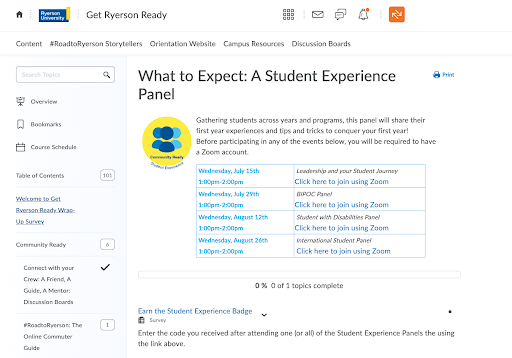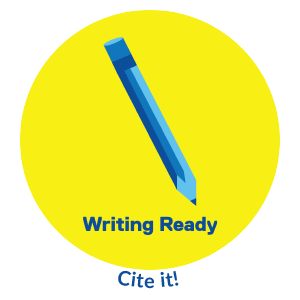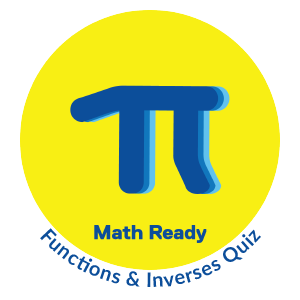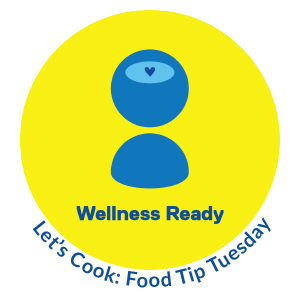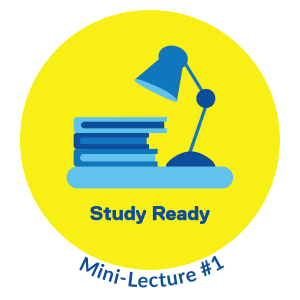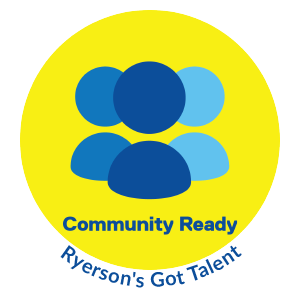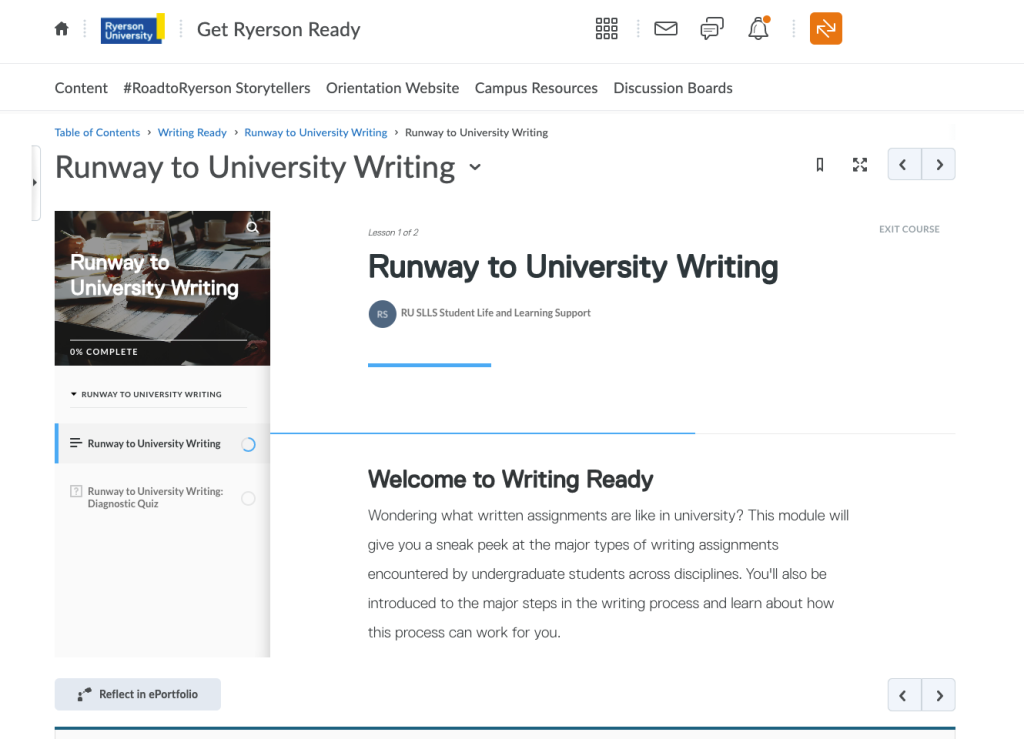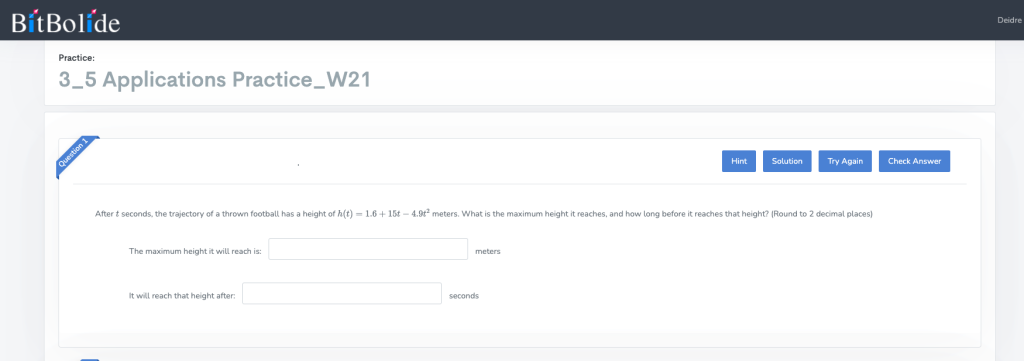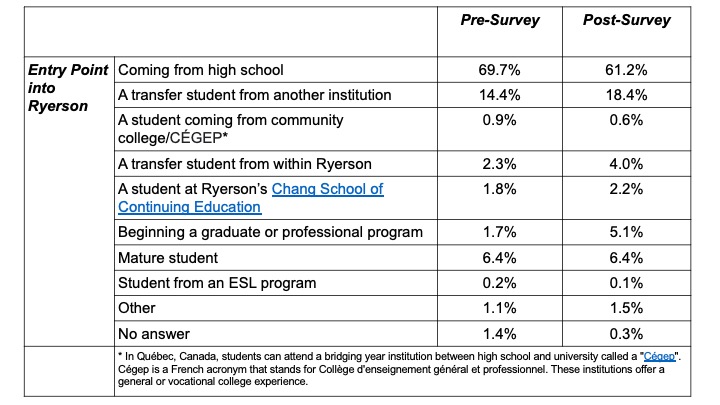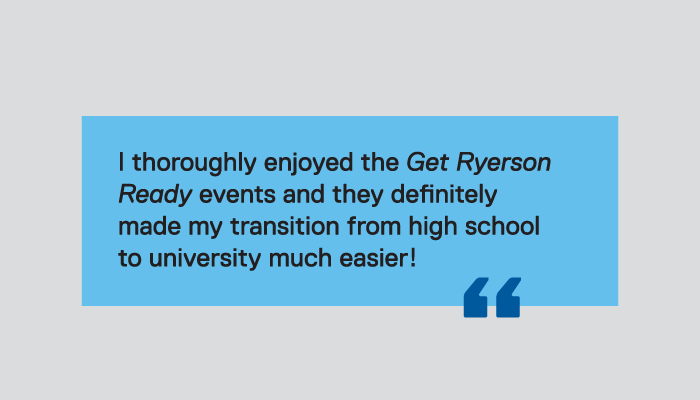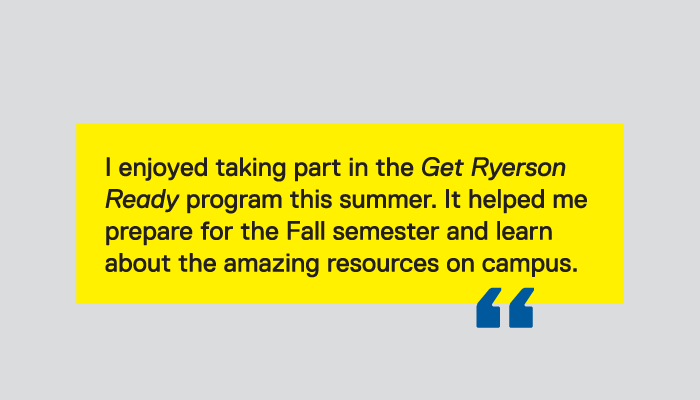By: Rachel Barreca and Kait Taylor-Asquini
SUMMARY
In response to the impact of COVID-19 on incoming students’ transition to Ryerson University, a dedicated cross-departmental project team was convened to create an online preparatory program. In just two months, while still performing their regular job functions in the new online environment, the Get Ryerson Ready team researched, developed, designed, and launched a robust, innovative, multi-disciplinary, and award-winning transition curriculum to support the success and well-being of the incoming class of 2020.
The Context
In April 2020, leadership in the Office of the Vice Provost, Students (OVPS)1 at Ryerson University met to discuss the development of summer bridging courses to respond to the impact of COVID-19 on the experience of incoming students. Recognizing the incomplete final semester for high school students and a fully online learning environment at Ryerson projected for the Fall 2020 term, a project team was created with staff from Student Life & Learning Support, Athletics & Recreation, and Student Wellbeing, with assistance from the Registrar’s Office, Student Affairs Storytelling, and Computing & Communication Services. In just two months, the team researched, developed, and launched a robust multi-disciplinary, holistic transition curriculum for the incoming class of 2020 and Get Ryerson Ready was launched. This team has since won Ryerson’s 2021 Julia Hanigsberg Make Your Mark Staff Award for Client Service in recognition of their extraordinary efforts to support student success!
The program’s objectives were to deliver programming that:
- addressed knowledge and skills gaps;
- connected new students to campus resources, community values and standards, staff, faculty members, and their peers;
- created a sense of community and belonging;
- familiarised new students with online platforms and tools they need to know as Ryerson students,
- built students’ confidence in their ability to learn and engage online;
- provided multiple methods of delivery and access to learning resources; and
- was equitable and inclusive overall, addressing the specific transition needs of students from equity-deserving backgrounds.
What We Did
Get Ryerson Ready launched on July 3, 2020 and featured five key modules with intentionally designed curriculum that addressed the challenges potentially faced by incoming students:
- Community Ready
- Math Ready
- Study Ready
- Wellness Ready
- Writing Ready
Check out Get Ryerson Ready Video here.
Ryerson’s Learning Management System, Desire2Learn (D2L), was used as a host for a majority of Get Ryerson Ready programming. This provided participants with opportunities to interact with an interface and content that illustrated what they would experience with their university-level online courses.
Students were also encouraged to join and engage with peers, staff and faculty via online message boards, hosted on the PeopleGrove platform by the Tri-Mentoring Program (Ryerson’s peer-to-peer mentoring program).
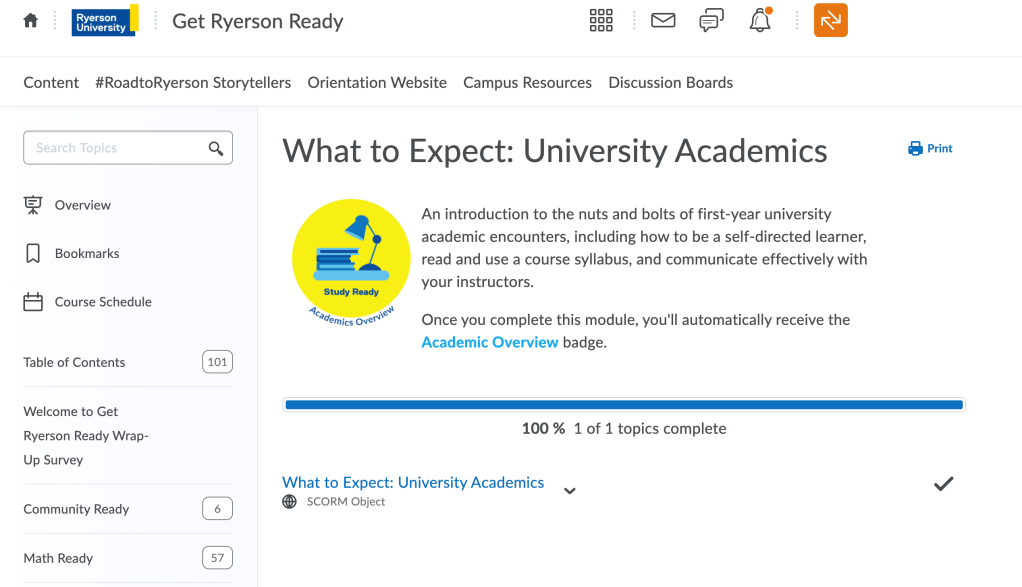
The Get Ryerson Ready team considered every aspect of the program through an equity, diversity, and inclusion (EDI) lens, with a particular focus on meeting the needs of Black-identified students. The Community Ready module specifically and intentionally focused on welcoming and supporting students from a variety of equity-deserving groups, including students who identify as: 2SLGTBQ+, Black, Filipinx, Indigenous, Latinx, Lusophone, Mature, and/or Muslim women, plus women in STEM and students living with a disability.
As a way to encourage participation, virtual “badges” were distributed for the completion of asynchronous modules, attendance at events, and engagement with elements of online platforms (e.g. message boards). As the participants collected badges, they were entered into draws for prizes, including Amazon gift cards and four grand prizes of iPads.
The team also nimbly responded to problems such as:
- creating content for a high-quality and engaging website to be used for recruiting purposes, before completing the design of the new program, which was accomplished with help from the communications and storytelling teams in Student Affairs and the Registrar’s Office;
- manually uploading 13,003 incoming students’ profiles into D2L, even though they had not yet matriculated, which was done with the help of the Registrar’s Office and Computing & Communication Services;
- using a variety of technologies in new and more in-depth ways in order for programming to be delivered online, which required a lot of quick self-instruction while simultaneously planning content.
Platforms such as Zoom, Google Meet, Instagram, YouTube, PeopleGrove, Bitbolide, Rise 360 and Articulate Storyline were used to run activities for both synchronous and asynchronous content, as well as for D2L course management and the badging system. Zoom and Google Meet were used for social gatherings, mini-lectures, tutorials, and drop-in hours. Wellness Ready hosted sessions on Instagram Live and YouTube. Interactive and engaging asynchronous lessons for Study Ready and Writing Ready used Articulate Storyline, and the Bitbolide platform was used for Math Ready lessons.
It is worth noting that the Get Ryerson Ready team created this program while they all grappled with the personal and professional ramifications of the COVID-19 pandemic and diligently ensured that their day-to-day work also shifted to the new online environment.
What We Observed
Between July and September 2020, 13,003 students had access to the Get Ryerson Ready course shell on D2L, and 2,552 students (a 19.6% engagement rate) actively engaged with content presented through a series of synchronous and asynchronous delivery methods.
Given the limitations of our assessment platform at the time as well as the short amount of planning time to launch Get Ryerson Ready, it was not possible to get permission nor to create a process to include embedded data about incoming students from the Registrar’s Office in the pre- and post-surveys. Only two demographic questions were asked in an effort to keep the surveys short and encourage high completion rates. As such, we knew which faculties the participants came from as well as their entry point into Ryerson. The data indicates that participants represented an evenly distributed mix from all six faculties that offer undergraduate programs and, not surprisingly, the majority of participants came directly from high school.
By September 2020, Get Ryerson Ready:
- introduced new students to the D2L platform months before their first classes began;
- actively engaged participants with content for an average time of 24 minutes, 54 seconds;
- awarded 3,806 badges for participation;
- engaged faculty members from across the University through the mini-lecture programming, which in turn provided them with opportunities to practice their online lecturing skills before the academic year began;
helped our Admissions & Recruitment team illustrate Ryerson’s standards of care, innovation, and adaptability to almost 23,000 prospective students at a crucial time in a recruitment cycle under the unknown influence COVID-192.
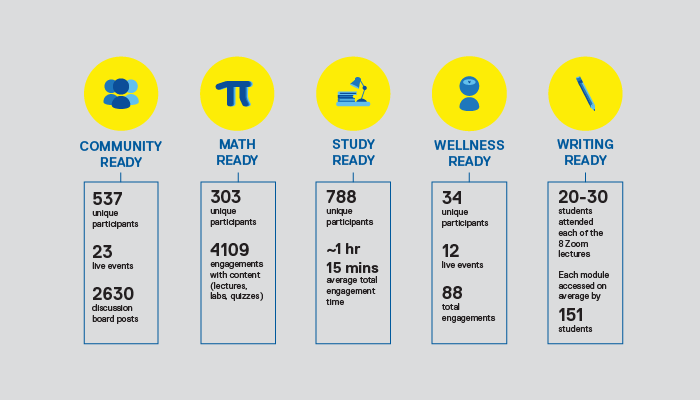
What We Learned
Key overall findings from our pre- and post-surveys3 include:
- The majority of students felt more prepared, more confident and clearer about their academic and community responsibilities as Ryerson students as a result of participating in Get Ryerson Ready.
- As a result of participating in the program, students reported an overall decrease in concern in areas including attendance of online lectures, comprehending course material, and accessing both student and academic support.
- Over 50% of students surveyed raised concerns about being able to socialize with peers and connect with the Ryerson community even after participating in Get Ryerson Ready.
Students’ anecdotal feedback indicates that they found Get Ryerson Ready to be a helpful bridge into university and the fully online learning environment, allowing them to mentally prepare for their courses, socially connect with other incoming students, and learn about resources.
- “I have never really felt engaged during remote learning – today I really appreciated having the time after class to reconvene and chat and socialize.”
- “All the resources for the different subjects allowed me to review knowledge and be mentally prepared for my courses.”
- “I loved how the course was structured. I found the different courses provided on D2L really helpful as well, especially the ones that detailed the different supports available to students.”
- “The writing tips helped me get a better understanding of how to better write a university grade paper.”
- “I want to personally thank you. It was both helpful to get ready and receive incentive for that. Good idea.”
More detailed findings from each of the five modules also proved to be helpful.
Community Ready
- Events and activities focused on transition and academics (e.g. finding communities, student experience panels) gained more traction and had higher attendance numbers than social events (e.g. games nights, talent shows, and DIY activities). This is the opposite of what was observed when most orientation and transition offerings were in-person during pre-COVID times.
- Students were highly engaged and participatory during the Q & A portions of events, often running two to three times longer than what was allotted.
Math Ready
- Based on students’ anecdotal feedback, they found the instructional videos very easy to follow and they wanted more opportunities to practice than what was offered.
Study Ready
- Students attended mini-lectures that did not necessarily correspond to their academic programs, expressed interest in and curiosity about lecture topics outside of their field of study, and asked about elective options.
- After the mini-lectures, professors reported students reaching out, in response to invitations they made during their mini-lecture, with questions about courses and programs.
Wellness Ready
- By focusing on the student experience and the other facets of well-being, including the connection between regular activity and academic performance, we welcomed more students to online classes, programs, and spaces offered by Athletics & Recreation.
Writing Ready
- Kahoot quizzes following lectures and modules were valuable for encouraging student engagement and cementing learning, however, these were not necessarily valuable for assessment purposes.
- While the percentage of correct responses to Kahoot quizzes indicates that learning outcomes were met generally, there were discrepancies between these outcomes and the aspects of writing that students continued to struggle with in their essay contest submissions.
Planning for 2021
Program planning for Get Ryerson Ready 2021 is underway. Consultation with key stakeholders in all Faculties aims to enhance programming for individualized needs and interests and to increase the overall engagement of students across academic programs. The assessment plan for 2021’s program will include a check-in with participants at the midpoint and end of their first academic year at Ryerson, designed to inform the impact of Get Ryerson Ready on student persistence and retention. Given that over 50% of respondents raised concerns about being able to socialize with peers and connect with the Ryerson community, there will be a research focus in the planning phase on supporting community engagement and connection in online environments.
Discussions with the team about the data pulled from a variety of sources (e.g. surveys, quiz scores, submitted assignments, D2L analytics, and observations) were rich and led to an abundance of recommendations for future iterations of Get Ryerson Ready. Ideas put forward for 2021 include, but aren’t limited to: increasing data collection functionality on existing platforms, adding asynchronous modules while reducing the length for more targeted learning outcomes, pre-recording fitness classes to increase reach and accessibility, and adding co-facilitators to synchronous content to further facilitate conversation and answer questions.
In Conclusion
The essence of this program was a quick pivot to ensure Ryerson University met the new urgent and emerging needs of our incoming students during a time of uncertainty in a fully online service and learning environment. Get Ryerson Ready was student-centred, learner-focused, research- and praxis-informed, responsive, and relevant. It responded effectively and creatively to the context of learning, well-being, and community building in a fully online environment, all within the first months of the COVID-19 lockdown in Toronto. We are proud of our award-winning accomplishments and excited to build on the successes of the program as we continue to improve how we meet the transitional needs of new students at Ryerson.
Endnotes
1 This included the Registrar, the Executive Director, Student Affairs, and the Director, Student Life & Learning Support.
2 Between late June and late July 2020, 22,834 prospective students opened the Admissions & Recruitment team’s emails promoting Get Ryerson Ready, which was an open rate more than 1.5 times higher than the higher education industry average (source: MailChimp).
3 811 students responded to the Get Ryerson Ready pre-survey and 668 responded to our post-survey. due to the limitations in the assessment platform, it is not possible to prove that those who filled out the pre- and post-surveys were the same participants.
Bios
Rachel Barreca (she/her), B.A., M.A., is a settler Canadian student affairs pro who currently works on the Dish With One Spoon treaty lands as the Manager, Strategic Initiatives in Ryerson Student Affairs. She has been supporting successful student transitions into higher education since 1994.
Kait Taylor-Asquini (she/her), B.A., M.A., is the Director, Student Life & Learning Support in Student Affairs at Ryerson. A member of the Ryerson community since 2004, she has experienced the growth and evolution of the student experience at Ryerson as both a student and staff member.

